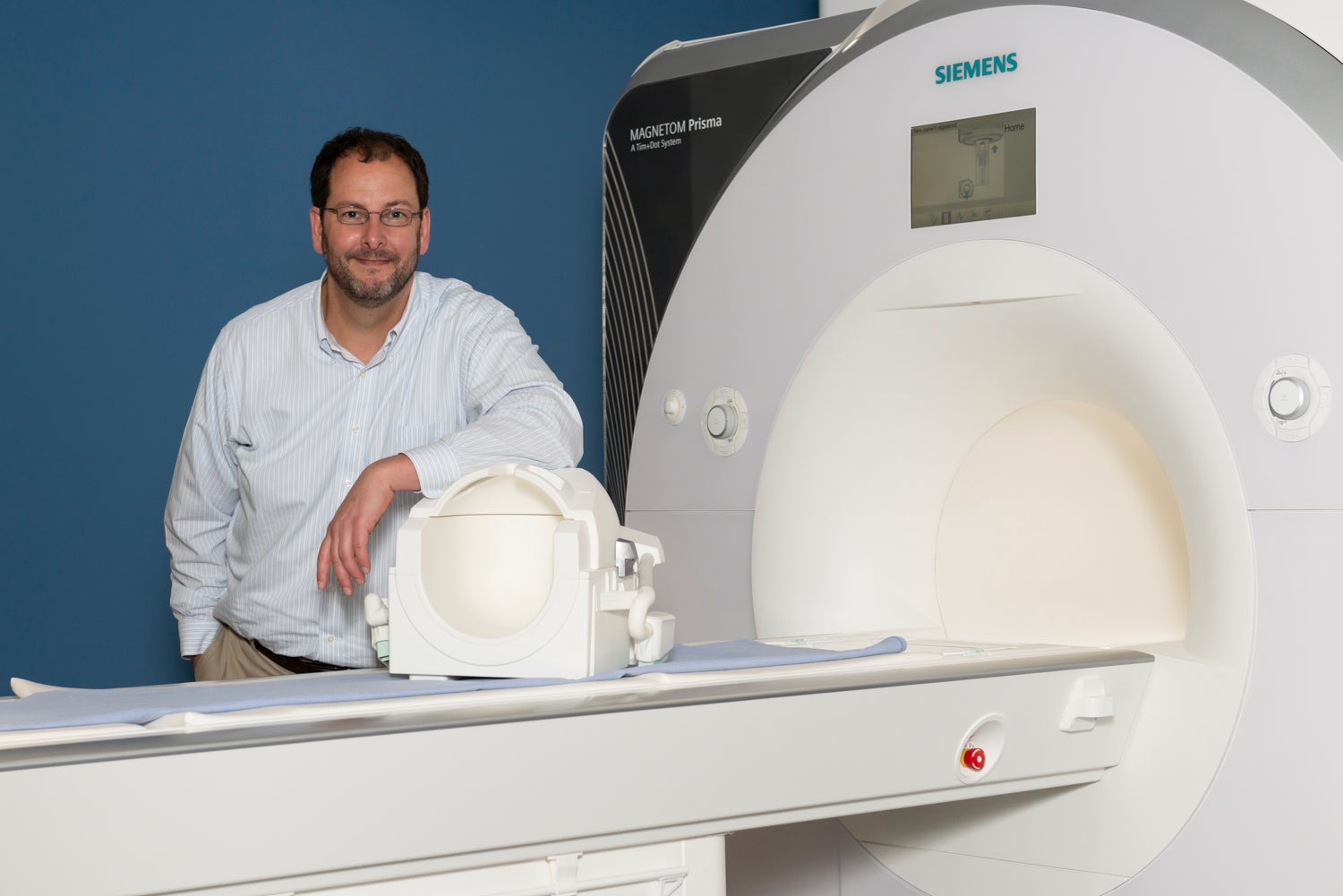
Weighing about three pounds, the human brain contains billion of neurons that are wired together in complex but highly structured networks. How precisely these networks are organized and how genetic variation gives rise to differences that affect behavior is a central question of modern neuroscience.
The Buckner lab explores the organization and function of large-scale human brain networks that contribute to high-level cognition. Using multiple behavioral, neuroimaging and computational approaches we characterize brain networks and how genetic variation gives rise to differences in network organization and behavior, including dysfunction in neuropsychiatric illness. For example, in a series of recent studies we comprehensively characterized the organization of the cortex, striatum, and cerebellum with a particular focus on brain association networks important to memory and cognitive control. Using the understanding of normal organization as a foundation, we also explore disturbances in network organization in a range of neuropsychiatric and neurodegenerative illnesses.
Current projects seek to determine whether dysfunction can be detected prior to clinical symptoms in individuals at genetic risk for illness. Recently our work has turned to exploring the detailed organization of individual brains and how that organization differs across people and changes over time. This push toward the individual brain is critical for clinical translation as well as a number of open questions about how transient brain states influence behavior.
